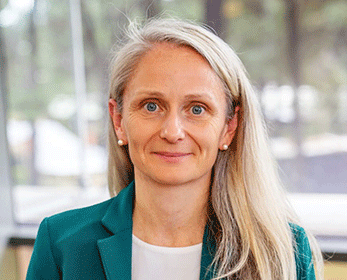It's widely accepted that exercise can help people living with cancer, but new Edith Cowan University (ECU) research shows many oncology healthcare providers aren't regularly including it in their treatment plans.
"There is consistent evidence showing that exercise can help to manage various side effects of cancer treatment, improve physical and mental health, and improve the quality of life of cancer survivors. The next step is to translate this evidence into routine clinical practice, so that all cancer survivors can benefit," lead researcher Dr Jack Dalla Via said.
This is reflected in a 2018 position statement developed by the Clinical Oncology Society of Australia (COSA), and endorsed by 20 other organisations, which states that exercise should be a standard part of evidence-based cancer care.
COSA encourages all health professionals caring for people with cancer to talk about the benefits of exercise, recommend following exercise guidelines, and refer patients to an exercise specialist. A survey of 133 healthcare professionals who work with people living with and beyond cancer found that 94% of participants agreed that exercise would be beneficial to patients, but that only 35% of the respondents routinely followed this guidance in the COSA position statement.
Additionally, less than a quarter of participants said that their organisation revised their practice based on this guidance.
"There appears to be an issue translating this guidance into practice," Dr Dalla Via said.
ECU postdoctoral research fellow Dr Mary Kennedy noted that a common reason why oncology healthcare providers were hesitant to provide exercise guidance as part of the health plan was their belief that they were not best placed to provide this type of care.
"A lack of resources within their organisation to action the guidelines was another issue," Dr Kennedy said.
"These structural issues that are preventing the action of evidence-based guidelines in practice are crucial to explore if we are going to be able to meaningfully integrate exercise into oncology care. Previous research has demonstrated that structured exercise programs can significantly improve survival rates for people diagnosed with cancer, and we believe that a focus on how exercise can be delivered in care is the only way to ensure people have access to this important medicine."
Dr Dalla Via agrees, adding that better referral pathways need to be developed to give oncology healthcare providers access to exercise professionals.
"A lot of the survey participants felt that it was easy to discuss and recommend exercise to their patients, but fewer found that it was easy to refer them to exercise professionals. And those are the people with the skills and training to help people living with, and beyond cancer, to see the benefits of exercise."
Dr Kennedy said there is no one-size-fits all solution to integrating exercise into routine cancer care, but firmly believes organisations need to develop an implementation strategy that works for their community.

 COSA encourages all health professionals caring for people with cancer to talk about the benefits of exercise.
COSA encourages all health professionals caring for people with cancer to talk about the benefits of exercise.



